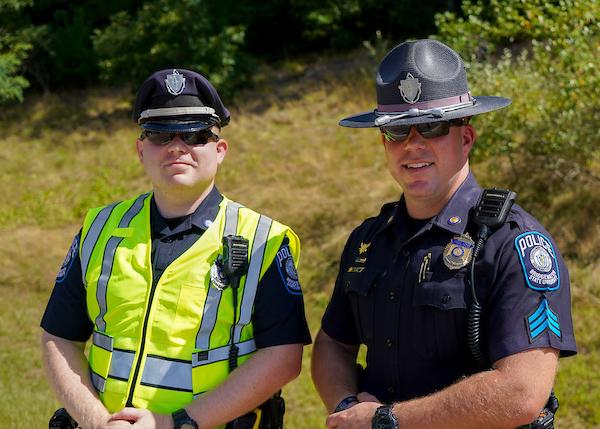Massachusetts colleges are stepping up efforts to bolster campus safety as institutions respond to growing concerns about student security and well-being. With a range of new measures being implemented across campuses-from enhanced surveillance systems to increased security personnel-these schools aim to create safer environments amid evolving challenges. This move reflects a broader commitment within the state to prioritize student protection while maintaining vibrant academic communities.
Table of Contents
- Massachusetts Colleges Invest in Advanced Security Technologies to Protect Students
- Campus Police Departments Expand Training and Community Engagement Initiatives
- New Mental Health Programs Aim to Address Root Causes of Campus Incidents
- Experts Recommend Collaborative Approaches to Strengthen Safety Protocols Across Campuses
- In Summary
Massachusetts Colleges Invest in Advanced Security Technologies to Protect Students
Leading institutions across Massachusetts are upgrading their campus security frameworks by integrating cutting-edge technologies aimed at safeguarding students and faculty. These enhancements include the deployment of AI-powered surveillance systems, which enable real-time threat detection and rapid response coordination. Additionally, many campuses are installing smart access controls that leverage biometric authentication, significantly reducing unauthorized entries. The new measures reflect a proactive stance on safety, emphasizing prevention as well as readiness for emergencies.
Besides technological advancements, colleges are also expanding communication tools to ensure swift dissemination of critical alerts. Key features now employed are:
- Mobile alert apps that provide instant notifications on campus incidents
- Enhanced lighting and emergency call stations strategically placed throughout campus grounds
- Integrated visitor management systems that monitor and log campus access rigorously
These investments underscore Massachusetts colleges’ commitment to creating secure learning environments while fostering confidence among students and staff alike.
Campus Police Departments Expand Training and Community Engagement Initiatives
Campus police departments across Massachusetts are intensifying their commitment to safety by broadening training programs and strengthening community partnerships. New protocols emphasize de-escalation techniques, cultural competency, and mental health awareness, ensuring officers are equipped to handle diverse situations with professionalism and empathy. These initiatives reflect a proactive approach to fostering trust and clarity between campus security personnel and students, faculty, and staff.
As part of their enhanced community engagement strategy, departments are launching several key programs, including:
- Regular town hall meetings to gather student input and address safety concerns directly
- Peer-led safety workshops designed to empower students with self-protection skills and awareness
- Collaborative efforts with local law enforcement to streamline emergency response and resource sharing
- Expanded ride-along programs allowing students to better understand campus law enforcement operations
New Mental Health Programs Aim to Address Root Causes of Campus Incidents
Massachusetts colleges are launching innovative mental health programs targeting the underlying factors that contribute to campus incidents. These initiatives prioritize early identification of stressors, trauma, and behavioral health challenges, emphasizing a holistic approach to student well-being. Institutions are integrating counseling services with community outreach efforts, ensuring students have multiple access points for support. Additionally, training for faculty and staff on mental health awareness is being expanded to foster a more supportive campus climate.
Key program components include:
- Proactive mental health screenings aimed at detecting early signs of distress before incidents occur.
- Peer support networks designed to empower students to assist one another and reduce stigma around seeking help.
- Collaborations with local healthcare providers to ensure timely intervention and continuity of care beyond campus.
Experts Recommend Collaborative Approaches to Strengthen Safety Protocols Across Campuses
Leading safety experts advocate for a unified front among Massachusetts colleges to enhance security systems and emergency preparedness. By fostering partnerships between institutions, local law enforcement, and community organizations, campuses can share vital resources and intelligence. This cooperative strategy aims to create standardized protocols that improve response times and mitigate risks across educational settings.
Recommended measures focus on:
- Joint emergency drills to simulate realistic scenarios and ensure coordinated action
- Integrated communication platforms for instant alerts and updates
- Collaborative training programs that align safety knowledge and skills among campuses
- Data sharing agreements to analyse threats and improve preventive measures
Experts emphasize that successful implementation requires consistent dialog and commitment from all stakeholders, ensuring a safer habitat for students and staff across the state.
In Summary
As Massachusetts colleges continue to prioritize student safety, these enhanced measures reflect a broader commitment to creating secure and supportive campus environments. With ongoing investments in technology, training, and community engagement, institutions across the state are setting new standards in campus safety. As these initiatives evolve, both students and staff can look forward to safer, more resilient college experiences in Massachusetts.

